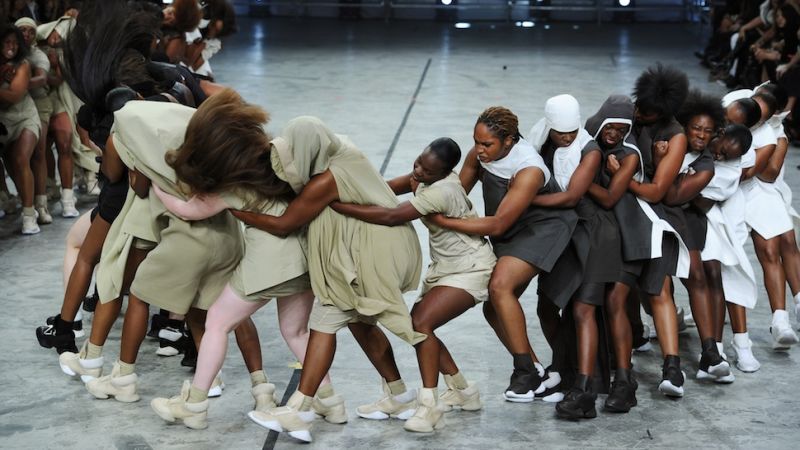
Mar
Diversity Without Pity #29 | Rick Owens’ Women’s Spring/Summer Collection 2014
[responsivevoice_button voice=”UK English Female” buttontext=”Listen to Post”]
I hate Chris Rock’s Good Hair.
The critically-acclaimed comedy/documentary look at the African American women’s hair industry (’cause it’s not about men) is, in my opinion, essentially a movie about a Black man telling Black women we are foolish and selfish for what we do to our hair. It implies we have no autonomy over our self-expression or self-adornment. He intentionally constructed a narrative on a presumption that a man — especially if he is Black — can speak with more authenticity on Black women’s aesthetic choices than ourselves.
Now, let’s take a look at Rick Owen’s Women’s Spring/Summer 2014 collection:
You don’t see a White man “discovering” these women. You don’t see anyone, within the context of the show, making a mockery of these women. Instead, you see dark-skinned Black and White women owning their bodies, and their creativity. You can tell this was a collaboration between the dancers, the designer, and the show producers.
When this show debuted in the Fall of 2013, responses ranged from acclaim to outrage (read the comments, y’all). Owens himself plainly stated that he wanted to explore sportswear, and what better way to do that than to have the clothes performed in actual athletic people. He also understood it was not his position to explain the history of step dancing to the audience. He just simply said…

In Joan Morgan’s work on the politics of pleasure, the ways Black women in particular are told how they should be in pleasure is still heavily dictated by others. Rarely do we ever get to decide for ourselves what is fun and celebratory for us. This show does something rare, and should be acknowledged: It’s co-created by a White man who didn’t claim any rights or discovery of the dancers or their work. He challenged himself and his audience about what athleticism can look like. And the women in the show represented the art and technique to step through both face and body in a very self-possessed way.
Though imperfect, I would rather have Rick Owens as an ally in the move toward challenging, progressive art than Chris Rock any day. We at least share a distaste for mood boards. This sometimes shows our greatest creative allies don’t necessarily have to be people who look like us, because they may not always think in our best interests. That’s a hard thing to ask oneself. But it’s a question worth asking when we are asking for more diversity.
Diversity Without Pity is a blog series from IDSL, highlighting media that uses smart design, and considers the diversity of it’s casting without selling the viewer or consumer, short. Image courtesy of Jezebel.


